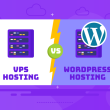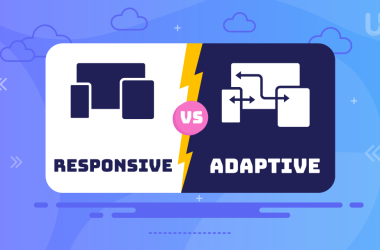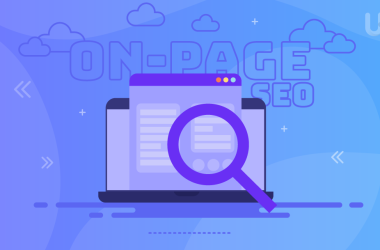Making your website easily navigable and friendly to search engines is vital in the virtual environment. Among the most critical factors in this regard is the permalink. Unlike what most web administrators seem to presume, permalinks refer to permanent URLs that link to individual pages or posts on your website.
In this post, we will talk more about what permalinks are, why they are such a big thing for your website, and how to do effective permalinks that work like magic for the user and SEO.
What is a Permalink?
Permalink meaning refers to the URLs that are given to the pages of your blog or WordPress website hosting platform.
Every time you hit that publish button, that specific post or page has a unique permalink. This happens automatically based on your settings and the title of your content. Now, the default setting of the link itself is often not all that pretty and is rarely optimized.
WordPress uses the following permalink structures by default:
- Plain: https://www.ultahost.com/?p=123
- Day and name:
- Month and name:
- Post Title:
Importance of Permalink

There can be no understatement of the importance of permalinks in search engine optimization:
- The permalink makes it possible to create user-friendly URL structures. It is far easier for your visitors to understand and share web pages or blog posts. A user will instantly understand what is being discussed from the URL itself by just looking at it.
- They play a huge role in making a website more visible to search engines. Algorithms of search engines such as Google index a website’s content given several aspects, among them the structure of the URLs, which thus influence its rank. Keywords in permalinks enable search engine algorithms to index relevant pages accurately for related search queries and rank them appropriately.
- Well-optimized permalinks also increase the chances of your content being shared. That’s not only when it is easily shared among visitors but also because it is readable and easily shared on different social media platforms.
- Also, clear and short permalinks make it easier for other websites to link to your content, which is an essential consideration for determining search engine rankings.
The structure, therefore, should be well thought out to fully exploit the potential that Permalinks offers for improved search engine ranking and visibility, as it should be easy and straightforward to understand and share.
How to Create a Good Permalink?
All you need in crafting a good permalink is a few simple things:
- Your domain name
- Your slug
- Your path (If organizing content into multiple topic categories)
When forming your permalink, follow best practices:
- Be concise: Do not use articles such as “the, “a, or “an,” and a slug that is a shortened form of your title. If you titled your post “How to Create an Instagram Story,” for instance, your slug could simply be /Instagram-story.
- Incorporate relevant keywords: Optimize your slug by inserting relevant keywords that designate a direct association with the content on the page.
As for creating permalinks, this generally takes place in your content management system or website builders like WordPress and Wix or Drupal and Joomla. In an ideal world, you would set up permalinks shortly after creating your site but before publishing any type of content. However, adjustments can be made at any moment in time. If you change old URLs on your new structure, update any backlinks or add redirects to those pages.
Optimize Your Website’s Visibility Today!
Ready to enhance your website’s SEO and boost its visibility? Explore UltaHost’s Shared Hosting plans for reliable, high-performance hosting that ensures your permalinks and content shine online. Elevate your website’s presence now!
Permalink Best Practices
While permalinks are pretty basic in concept, they can get far more complicated as soon as your site does. Good design and development of your permalink structure involves following best practices and avoiding common pitfalls.
Include Keywords in the Slug
Every post should have one primary keyword that it is targeting. This one primary keyword needs to be in the slug of your permalink. It helps search engines and readers know what your webpage will be about at first glance.
Primary keywords typically are two to four-word-long pieces: short, descriptive phrases people use to look for information. Many keyword research tools exist to conduct research and find the right primary keywords.
For instance, if you were to write on SEO best practices, you would use the slug “/SEO-best-practices,” whereas for some content on headless WordPress, use “/headless-wordpress.” Always use hyphens to separate the words.
While your post should rank for all those keywords, pay the most attention to your permalink with the most important one. You can include the longer-tail ones, but be careful not to make long URLs.
Keep Permalinks Short
Ideally, permalinks should be less than 60 characters in length. Google’s Matt Cutts recommends three to five words. Long permalinks look awful and, more often than not, are useless for both search engines as well as users. Shorter in-length URLs tend to rank higher in Google searches.
Make Sure You Have a Consistent Structure
At UltaHost, blog content is at /blog/: www.ultahost.com/blog/[insert-slug-here].
Also, once you start publishing, use a consistent structure for your permalinks. For example, if your blog lives in /blog/, keep it all there; don’t move it to /news. If you have product documentation, follow a consistent path like /docs/.
Though you can use either “/blog/” or “/docs/” for permalinks, be consistent when using similar content.
Avoid Using Dates
Although dates in title tags and H1s can help push these click-through rates and engagement metrics up, you do not want dates within your permalinks. The last thing you would need when updating content is having an old date within a permanent link conflict with editing on your title tags or H1s.
Some content management systems come out of the box with publishing dates being used in permalinks, such as “/blog/6/1/2024/[slug]”; turning these off will eliminate problems.
Avoid Similar Permalinks
Make every permalink unique, especially in scenarios where similar content will appear regularly—for instance, their post or page. Avoid having slugs such as “/best-SEO-tools” and “/best-seo-tools-2”.
Well, permalinks help convey the structure of your website and the purpose of that page. Similar permalinks give great scope to keyword cannibalization issues, where Google can’t decide which page to rank for the keyword.
Exclude Unnecessary Words
For instance, if your post is titled “Top SEO Tools: Your Ultimate Arsenal for Success,” you’d want to have a short permalink targeting the main keyword, which would be something like “top-SEO-tools.” You could skip words like “ultimate,” “arsenal,” or “success”, as they don’t contribute much towards the URL but make it uglier.
As many as possible, one or two longer-tail keywords are good to go if they feel natural and don’t exceed 60 characters.
Avoid Extensions
If your content management system or CMS automatically adds domain extensions like .html, .php, or .exe to permalinks, turn this feature off. For instance, avoid www.ultahost.com/blog/best-seo-tools.html. Most modern CMS platforms default to avoiding the use of these extensions. A new platform may not support most of these extensions, and shifting to it might need many redirects, disrupting search rankings.
Don’t Use Random IDs
Some content management systems can set an ID to posts or pages, generating slugs like www.ultahost.com/blog/POST472. That does not help the reader or the search engines understand what the post is about. Take the time to write custom permalinks for every page. Set up settings, if possible, to have the default slug draw directly from the H1 if one forgets to specify. This is better than some random ID.
Conclusion
Permalinks are also a relevant issue in ensuring maximum navigation on your website and visibility on search engines. The best way of making these permalinks serve your purposes is by including the keyword, consistency of structure, and concise format for easy comprehension by users who might want to share and for search engine optimization. Proper management of permalinks, therefore, gives you the benefits of usability, maximum reach, and visibility on the internet.
With a wide range of domains available for purchase from UltaHost, you can establish a strong online presence and maximize the impact of your optimized permalinks. Start building your digital identity with top-notch domains today!
FAQ
Do permalinks affect website loading speed?
Permalinks themselves do not directly impact loading speed. However, using shorter and cleaner permalinks can enhance user experience.
Can permalinks include special characters or emojis?
It’s best to avoid special characters or emojis in permalinks. While some platforms support them, they may cause compatibility issues with browsers or web services.
Do categories in permalinks help with SEO?
Yes, including categories in permalinks can improve SEO by organizing content hierarchically. For instance, “/blog/seo-tips/keyword-research” clarifies topics to search engines.
Should I use absolute or relative permalinks?
Absolute permalinks (e.g., are generally preferred for SEO because they provide a complete URL path. Relative permalinks (e.g., /my-page/) are shorter but may pose challenges if the content is moved between domains.
How often should I update permalinks for SEO?
Establish a permalink structure early and avoid frequent changes unless necessary. Periodically review and update permalinks to align with content focus or keyword strategies.











